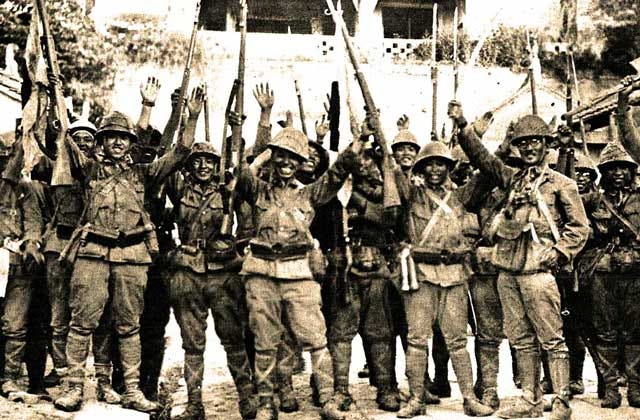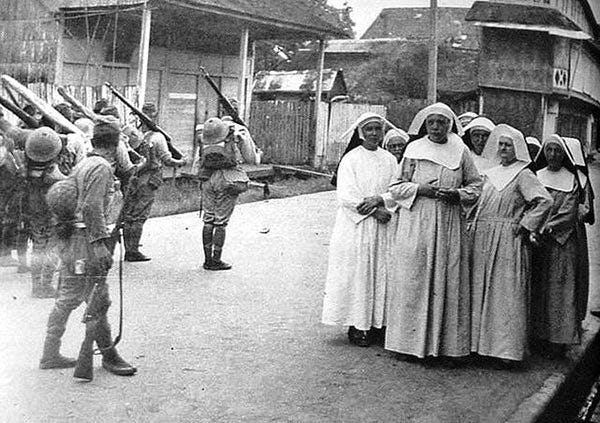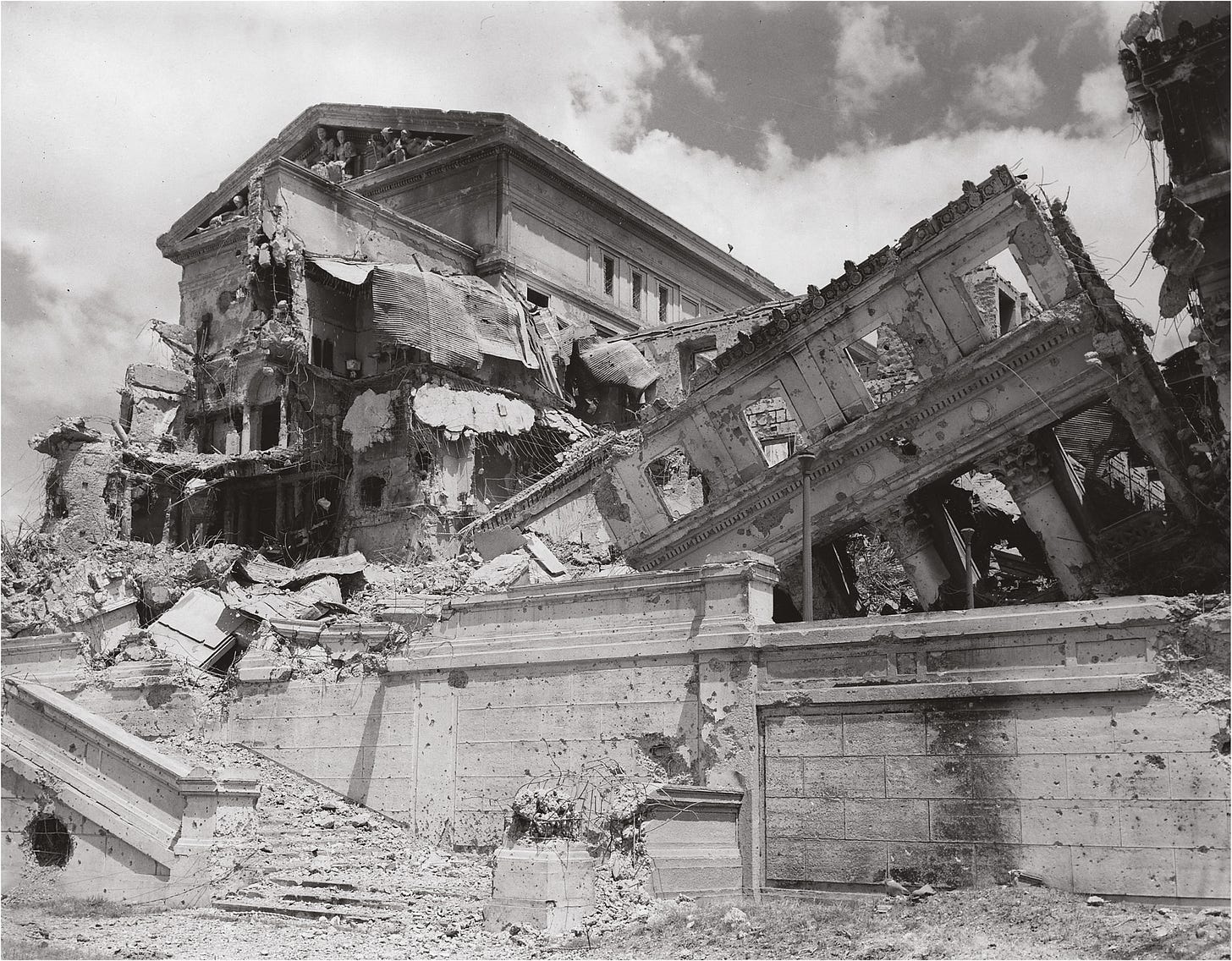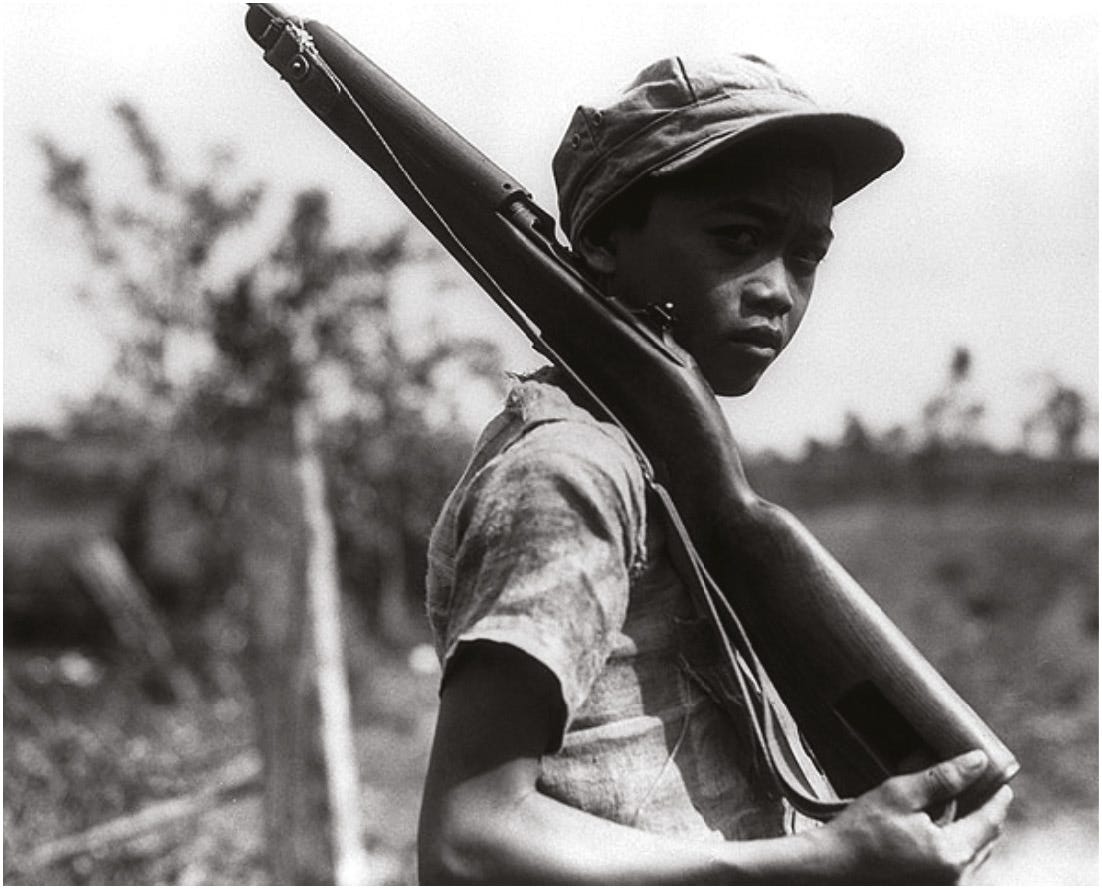Filipinos suffer under Japanese
12th March 1942: Law enforcement by the occupying forces on the Philippines is brutal and random
It was not just Prisoners of War who suffered under the Japanese. The so called ‘Greater East Asia Co-Prosperity Sphere’ - which the Japanese sought to use as an excuse for their military expansion - meant very little in practical terms to the countries which were occupied. This was just a front for Japanese domination.
In the Philippines, aside from the relatively small area of Bataan, the Japanese were now the occupying power, introducing their own regime. Discipline in the Japanese Army rested on a hierarchy of physical violence. Civilians in the occupied countries now found themselves at the bottom of the hierarchy.
In Manila, occupied since the beginning of the year, Juan Labrador1 was one of those closely recording developments:
March 12, 1942
The Filipino traffic policemen have gone back to their posts at the corners of avenues and principal streets. There are also a number of other peace and order agencies whose members carry no weapon other than a wooden stick, which replaces the rattan stick with which the police were armed when the Japanese arrived. The policemen direct the traffic while their Japanese counterparts stay under shades of trees or in alleys adjacent to buildings, giving the orders. It is typical of what is happening in the civilian administration.
In many cases, the Japanese apply rules obtaining in Japan but unknown in the Philippines. Whenever a Japanese traffic officer spots a violation—according to his standards—he would blow his whistle, and the Filipino policeman would run after the infractor and bring him to his master, who would then furiously reprimand the violator. The latter, not understanding the Japanese language, would merely bow continuously to pacify the Japanese. Sometimes the violator is released. At other times he is tied to a tree for a long time in punishment of a violation he never knew he committed. The poor Filipino, who could not understand a word, would end up not complying or doing the opposite infuriating the Japanese who would start dealing blows with his saber.
I never thought the Oriental imagination could be so fertile as to be able to invent such refined and painful torments. There are three classes of offences which the Japanese punish with unusual rigidity; thievery and looting, traffic violation, and disrespect for agents of the law.
Thieves and looters are kicked or dealt saber blows. Recidivists, or those who rob military installations, are made to walk on their knees and whipped, or their hands tied behind the head which is placed between the legs all tied up, and then hurled rolling against the wall, like a human ball.
Traffic violators are tied to a tree or post and kept there under the sun in public view for two days. In a few cases, when two infractors are caught at the same time, they are made to deal blows on each other until they are both hurt and exhausted.
Sometimes while the hands are tied behind the back the infractor is pushed from the front, tripping him at the same time and sending him rolling on the ground. This is repeated over and over until the poor fellow is bruised and bleeding.
Those who fail to salute the sentries posted in many strategic places are made to bow twenty times or more and if the performance is not satisfactory, the infractor is given saber blows.
These acts do not serve the new masters well in the sight of the public which talks about, compares, criticizes and is horrified by these novel methods. The repertoire of exquisite torments is inexhaustible.
Those mentioned are the most common. Each day new forms of cruelty are being invented or imported.
However, it should be noted that the same rigidity and strictness are applied to delinquent Japanese, civilian or military. The same punishments are dealt in the same public manner, although the Japanese either are less sensitive or are simply accustomed to such practices. They accept the blows without wincing, in stoic passiveness, firm as a statue before their henchmen.






